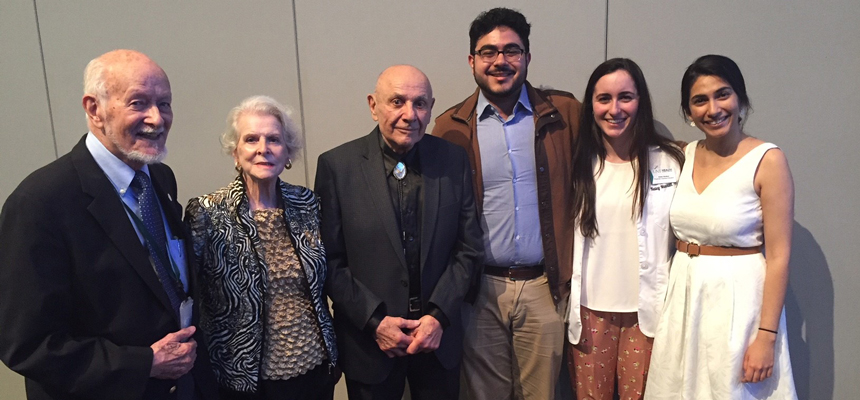Students share what ethics mean to them
By Alex Branch

Four students earned $1,000 awards for outstanding ethics essays at the Nicholas and Anna Ricco Awards Presentation.
The winners were all first-year-students:
- Prachi Thapar, Texas College of Osteopathic Medicine
- Katherine Mankus, School of Health Professions
- Heily Pham, UNT System College of Pharmacy
- Ellias Hishmeh, UNT System College of Pharmacy.
The awards were established through an endowed gift from the Ricco family.
Thapar wrote about ethical issues raised by pharmaceutical companies offering physicians incentives, such as a portion of sales profits, in exchange for prescribing medications.
“Accepting any sort of incentive can create a subconscious bias that results in overprescribing or over-utilizing the proposed product, and shift the focus away from the patient and their needs,” Thapar wrote.
Mankus wrote about a patient who had forgotten to refill an opioid prescription for pain and desperately called an urgent care clinic where Mankus worked as a medical assistant. The physician said the patient’s forgetfulness was no reason for the clinic to rush a refill.
“With the widespread misuse of pain medication, managing opioid prescriptions can be an ethical labyrinth in itself,” Mankus wrote. However, “I could not help but think of the suffering awaiting the patient if the physician postponed or even became overwhelmingly busy and forgot to refill the prescription.”
Pham, a former pharmacy technician, wrote about once helping a beleaguered patient in line at the pharmacy counter. The patient said her doctor was prescribing her so many medications that she feared they were making her feel unwell.
“We contacted the doctors to let them know about the situation and discuss with them the patient’s medication list,” Pham wrote. “Without violating my work ethics, the issue was taken care of, and the result turned out to be better than I expected.”
Hishmeh wrote about being instructed by a supervising pharmacist to no longer sell insulin syringes unless customers could prove they used them to inject insulin and not intravenous recreational drugs.
Hishmeh understood the pharmacist’s reasoning, but felt a consequence could be more frequent use of dirty needles amongst intravenous drug users.
“This situation posed an ethical question that every single pharmacist, especially those who practice in a community setting, need to answer,” Hishmeh wrote. “What are my responsibilities in addressing non-prescription drug abusers in the community I serve?




Social media